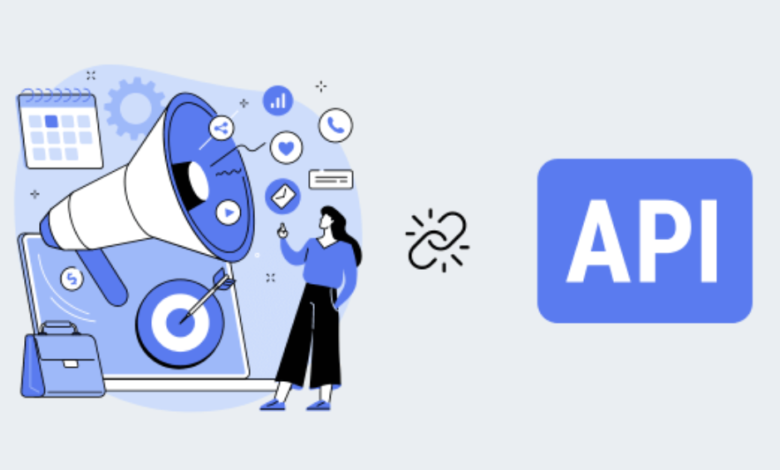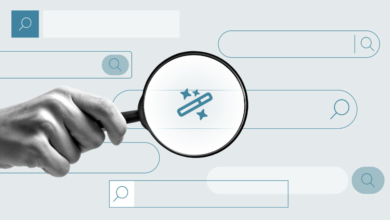
Okay, let’s get real here – digital marketing is blowing up like crazy these days.
The online world has become a new normal for businesses trying to get in front of customers and sell their stuff.
According to a survey published on social shephered, 85.7% of marketers started using social media as the pandemic began. Undoubtedly, it’s clear to everyone that numbers are only going to keep climbing to the sky.
In this kind of crowded playing field, companies have to seriously step up their marketing game if they want people to think of them when they need whatever product or service that business is selling.
Many companies have already started using APIs to stay ahead of the curve.
And, it’s unavoidable if you want to achieve the same progress for your business.
So stick around to find out how APIs are helping marketers level up and bring in more of those sweet marketing dollars.
First, let’s talk about what exactly are APIs.
What is API and How Does it Work?
APIs (Application Programming Interface), act like messengers that allow different software programs to talk to each other and share data seamlessly.
They connect various apps and services so that they can work together harmoniously. To make this happen, APIs define the rules for how these programs should interact.
How Marketers Are Using APIs for Efficient Marketing Operations?
Here are a few ways you can use APIs to boost your marketing efforts, take a load off your shoulders, and put a big smile on your client or manager’s face to get them more leads in less spend-
1. Automation
Managing mundane tasks doesn’t only rob your time but also your creativity. Instead of doing repeated tasks, you can use APIs for automation instead of killing your spirit.
Here is how productive marketers are doing it-
Using it for Email Marketing – Sending thousands of emails one by one gets you nothing but eye strain and back pain. But, with APIs, you won’t have to face this. Email marketers use APIs to integrate their email platform with a CRM system and other customer data sources. This lets them automatically populate mailing lists and personalize email content with real-time data like names, purchase histories, etc. No more manually exporting and importing lists! Try this out… and thank me later.
Helps in Social Media Scheduling – Posting social media posts for every platform sometimes drives marketers crazy.
To make this easier, marketers use APIs to connect scheduling tools to channels like Facebook, Instagram, Pinterest, Linkedin Twitter, etc.
This allows marketers to seamlessly queue up posts across multiple platforms on a single calendar. Not only this, APIs also enable auto-posting of user-generated content, product updates, and more.
Make Advertising a Breeze – Paid marketing is a big responsibility for marketers. It’s not just about running the ads but optimizing them and adding the right budget, targeting the right audience, and much more.
To get greater returns on their paid advertising, marketers use advertising APIs for channels like Google, Facebook, etc.
These let marketers programmatically manage and optimize their paid campaigns at scale – automatically adjusting budgets, targeting, creative assets, and more based on real-time performance data.
Allows Marketing Automation – Marketing automation makes things super easy for marketers and satisfactory for the customers. APIs act like a connective tissue between marketing tools and data sources. They seamlessly sync customer details, interactions, and behaviors across systems like email platforms, CRM databases, analytics tools, and more.
For example, when a customer adds a product to the cart but doesn’t buy, a personalized follow-up email or retargeting campaign is sent promptly based on real-time data flows.
By streamlining tedious tasks, APIs empower marketers to invest more time crafting strategic, data-driven campaigns while the grunt work happens automatically behind the scenes.
2. Provide Competitive Pricing Data
Setting the right pricing strategy is crucial for the success of any business. When it comes to choosing the approach for pricing, it often gets harder.
One approach that has proven effective across various industries is competitive pricing. This strategy involves setting prices in a way that’s not too high or too low compared to the competitors which helps the business to maintain a strong position in the market.
The first step in implementing a competitive pricing strategy is to get real-time accurate data on your competitor’s pricing. This data is essential for determining the optimal price point that will keep you competitive while still maximizing your revenue.
Fortunately, modern technology has made it easier to access up-to-date pricing intelligence from your competitors by using an API.
Leveraging APIs is pretty usual in the hotel industry. Many hotel chains and travel agencies use Hotel API. All you need to send a request to the API, and it will provide you with the latest pricing details from your competitors from various OTAs and hotel websites in JSON format.
With this valuable data at your fingertips, you can quickly and easily adjust your pricing strategies to stay ahead of the competition.
3. Streamline All Business Operations
APIs allow seamless communication and data exchange between different software. This connectivity fosters innovation, efficiency, and agility across various industries.
By breaking down data silos, APIs ensure information flows smoothly within organizations to enhance collaboration.
Plus, they also enable the integration of third-party services, from payment gateways to CRM systems, into existing ecosystems to further streamline operations.
Real-time data sharing facilitated by APIs is crucial for timely decision-making and operational efficiency.
It helps in automating repetitive tasks, freeing up resources for strategic initiatives, and improving data accuracy by minimizing manual entry errors.
This is how APIs are unlocking new possibilities for businesses to operate more efficiently and stay competitive in the dog-eat-dog world.
3. Facilitates Effective Communication
APIs help to integrate chatbots on your business platforms. It gives quick answers and available 24/7. A survey conducted by the chatbot, reveals that 64% of consumers find 24/7 availability to be the most helpful feature of a chatbot, which makes it a must-have integration for any online business worth their salt.
These conversational AI assistants provide customers with instant gratification – dishing out answers to common queries at all hours of the day and night.
But chatbots powered by smart APIs go way beyond just answering basic FAQs. They can dynamically tailor responses by tapping into backend data sources like inventory systems, order tracking, knowledge bases, and more. These APIs are capable of handling complex inquiries and transactions.
The slickest bots can even hand off conversations to human agents when needed while sharing full conversation transcripts and context.
And it’s not just customer-facing communication that gets streamlined. Internal teams can implement chatbots connected to business APIs to rapidly access data, reports, approvals, and more through conversational commands.
5. Helps in Levelling Up Your SEO Game
Pro marketers are already leveraging APIs to pick up the pace to boost their rankings. Instead of manually slogging through keyword research and data collection, they put APIs to work on those tedious tasks. Isn’t it amazing?
Well, there are more uses of APIs in SEO, I have mentioned a few here –
- Keyword Research – If you have done this wrong, nothing will go right in your SEO efforts. To analyze keywords from different tools and search consoles, marketers use keyword research It helps them quickly identify the most valuable terms to target without wasting countless hours pouring over tools and spreadsheets. These APIs scan massive datasets to surface relevant, high-value keywords aligned with your goals.
- Scrape SEO Data From Search Results – Scraping search results is a popular web scraping practice adopted by most businesses. However, it doesn’t work best for those who want to scrape Google data at a large scale due to facing limitations in efficiency and accuracy. This is where SERP APIs come in, it takes that further by continuously crawling the web to extract valuable SEO data at scale – like backlink profiles, content insights, keyword trends, and more. This granular intelligence feeds into smarter SEO strategies tailored to what’s driving results.
- Check Backlinks – Regarding backlinks, SEO tools such as Ahref, Moz, and many others provide their Specialized Backlink APIs. It helps to evaluate the quality and impact of your inbound link profile. They’ll sniff out any toxic backlinks that could be harming your ranking efforts so you can disavow them with confidence.
- Collect and Combine SEO Data: The best part? APIs feed all this rich SEO data directly into your existing marketing platforms and workflows. So you get robust capabilities without having to juggle more disjointed tools and manual processes. Just seamless integration amplifies your team’s productivity. With APIs handling the heavy lifting, you can be free to focus on executing laser-focused SEO strategies that move the needle.
6. Helps in Data Collection
APIs in marketing are like having a magical tool that lets you gather valuable insights from the vast digital world in just a few clicks. That’s what APIs do, and smart marketers are already harnessing their power.
One of the coolest things that APIs can do is web scraping. These nifty tools can extract data from websites which gives you a peek into customer behavior, market trends, and what your competitors are up to.
But APIs aren’t just limited to web scraping. They can connect you to all sorts of data sources, from social media to customer databases to give you a comprehensive view of your target audience.
Conclusion:
If you want to be the master of marketing games, APIs can be your cheat code.
APIs gave marketers the power to automate arduous tasks, x-ray vision into competitive pricing, and provide seamless user experience at every brand touchpoint.
Whether it’s behavior-driven campaigns or instantly fielding customer queries through intelligent chatbots, APIs are rocking.
If you haven’t already used APIs for marketing, it’s time to do it and level up your marketing for a new era of success.





